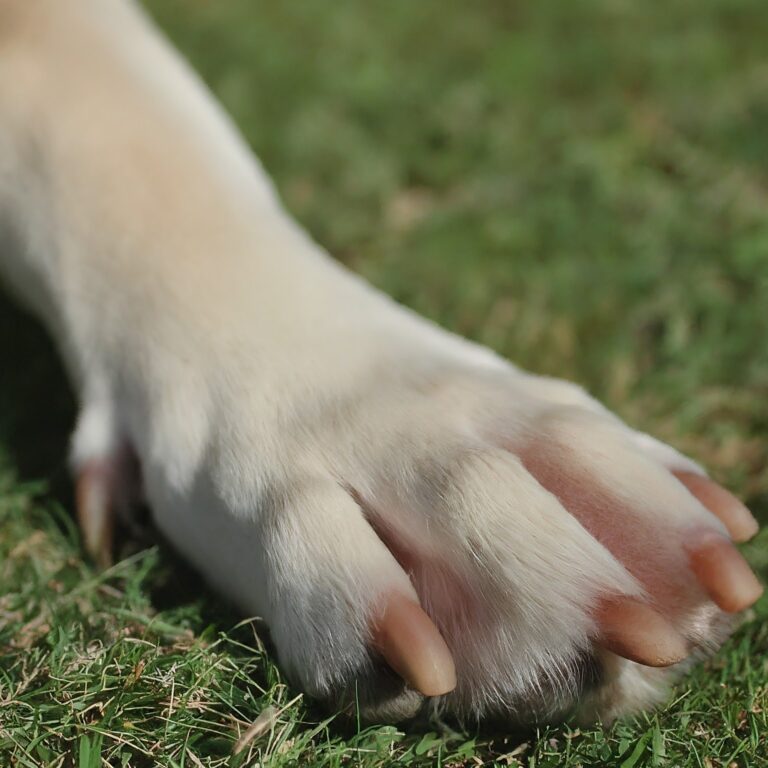Merle Pembroke Welsh Corgi

Discover the Merle Pembroke Welsh Corgi, known for its unique coat genetics and potential health concerns. The merle coat’s deviation from standard colors like red or black and tan may raise caution due to vision and deafness risks. Seeking reputable breeders who prioritize health testing is key. Ensuring adherence to breed standards helps maintain the breed’s integrity. Understanding the importance of responsible breeding practices can help you make informed decisions when considering a Merle Pembroke Welsh Corgi for your family.
Key Takeaways
- Merle coat in Pembroke Welsh Corgis deviates from breed standard.
- Merle gene inheritance leads to color variations like blue and red merle.
- Health concerns include vision impairment and deafness.
- Reputable breeders prioritize genetic testing for health assessment.
- Breeding two merle Corgis can result in serious health issues.
Merle Pembroke Welsh Corgi: Breed Background
The background of the Merle Pembroke Welsh Corgi involves a deviation from the accepted breed standard due to the introduction of the merle coat color gene. While the traditional colors for Pembroke Welsh Corgis are red, sable, fawn, or black and tan, the merle coat isn’t recognized by major kennel clubs. Merle Corgis often result from mixing with another breed carrying the merle gene, such as the Cardigan Welsh Corgi.
The genetic inheritance of the merle gene can lead to coat color controversies and health issues. Breeding for merle in Corgis raises concerns about merle ocular dysgenesis, linked to eye problems and vision impairment. Additionally, merle dogs might be more prone to deafness, especially when inheriting two copies of the merle gene.
If considering a Pembroke Welsh Corgi, seek out reputable breeders who adhere to the breed standard, focusing on health testing and avoiding breeding for non-standard colors like merle. For those interested in a purebred Corgi, understanding the implications of the merle coat variation and its genetic implications is crucial.
Merle Coat Color Genetics
Understanding the genetic basis of the merle coat color in Pembroke Welsh Corgis is essential for breeders and prospective owners alike. The merle gene plays a crucial role in determining the coat color of these dogs.
Here are some key points to consider:
- Merle gene: The merle gene is responsible for the unique coat patterning seen in merle Corgis.
- Coat inheritance: The inheritance of the merle gene follows specific patterns that can influence the color variations seen in the offspring.
- Genetic testing: Conducting genetic testing can help identify whether a Corgi carries the merle gene and assess potential breeding risks.
- Color variations: The merle gene can result in a range of color variations, including blue merle, red merle, and sable merle.
- Breeding risks: Breeding two merle Corgis together can lead to health issues in the offspring, such as merle-related health conditions like merle ocular dysgenesis and deafness.
Health Concerns in Merle Corgis
Health issues can arise in merle Corgis due to the presence of the merle gene, potentially leading to conditions like merle ocular dysgenesis and deafness. The merle gene is associated with a higher risk of vision impairment, including merle ocular dysgenesis, which can result in eye problems. Merle Corgis are also more prone to deafness, particularly if they inherit two copies of the merle gene. Deafness risk is a significant concern in merle-colored Corgis.
Genetic testing is crucial for identifying the presence of the merle gene and assessing potential health implications. Responsible breeders will conduct genetic testing to ensure the health of their puppies and avoid passing on hereditary conditions.
In addition to vision and hearing issues, merle Corgis may also be prone to ear problems due to their genetic makeup. When considering a merle Corgi, it’s essential to be aware of these health concerns and choose a reputable breeder who prioritizes the well-being of their dogs through proper genetic testing and breeding practices.
Finding a Reputable Breeder
To ensure the well-being of your future Pembroke Welsh Corgi, prioritize locating a reputable breeder. When searching for a breeder, consider the following key factors:
- Breeder Qualifications: Look for breeders who’ve a solid reputation in the dog breeding community and are knowledgeable about the Pembroke Welsh Corgi breed.
- Ethical Practices: Choose a breeder who prioritizes the health and well-being of their dogs over profits and follows ethical breeding practices.
- Puppy Health: Ensure that the breeder provides proper healthcare for their puppies, including vaccinations, deworming, and regular veterinary check-ups.
- Genetic Testing: Opt for breeders who conduct genetic testing on their breeding dogs to screen for hereditary health issues and promote healthy puppies.
- Contract Agreements: Obtain a detailed contract from the breeder that outlines responsibilities, health guarantees, and return policies to protect both you and the puppy.
Importance of Breed Standard Compliance
Adhering to the Pembroke Welsh Corgi breed standard is essential for maintaining breed integrity and promoting healthy breeding practices. When considering coat color, it’s crucial to stick to the accepted colors of red, sable, fawn, or black and tan to ensure the preservation of the breed’s characteristics.
Breeding ethics play a significant role in upholding the standard, as responsible breeders prioritize the well-being of the dogs over producing trendy or non-standard colors like merle. Genetic testing is a key aspect of maintaining breed health, particularly concerning eye health and deafness risks associated with the merle gene.
Frequently Asked Questions
Can a Merle Pembroke Welsh Corgi Participate in Dog Shows?
In the show ring, restrictions exist regarding coat colors, following breed standards without modifications. Controversy surrounds merle-coated Corgis due to genetic health concerns like merle ocular dysgenesis. Training challenges and socialization are crucial for all Corgis.
Are Merle Pembroke Welsh Corgis More Expensive Than Standard Colors?
When comparing pricing, be cautious of merle variations. Breeding constraints aim for health and standards. Merle coat links to ocular issues and deafness. Popularity trends show a rise in non-standard colors, but health remains paramount.
Do Merle Corgis Require Special Grooming Due to Their Coat Color?
When it comes to coat maintenance, grooming challenges, and color-specific care, merle corgis may require special attention. Shedding concerns and coat health are crucial factors to consider when caring for a dog with unique coloring like merle.
Are Merle Pembroke Welsh Corgis Good With Children and Other Pets?
When evaluating temperament, consider their interaction dynamics with children and pets. Socialize early, provide behavioral training, and supervise interactions. Ensure a safe environment and teach boundaries. Proper introductions and positive reinforcement can help foster good relationships.
Can Merle Corgis Be Registered With Kennel Clubs Despite Their Color?
If considering registration, note that breed standards dictate acceptable coat colors. Genetic testing is vital to identify the merle gene. Responsible breeders adhere to these standards, avoiding breeding for non-standard colors. Health concerns accompany merle coats.
Conclusion
In conclusion, when considering a Merle Pembroke Welsh Corgi, it’s vital to be aware of their unique coat color genetics and potential health risks.
By choosing a responsible breeder who prioritizes the breed standard and conducts thorough health screenings, you can ensure the well-being of your beloved companion.
Stay informed and make educated decisions to provide the best care for your Merle Corgi.






